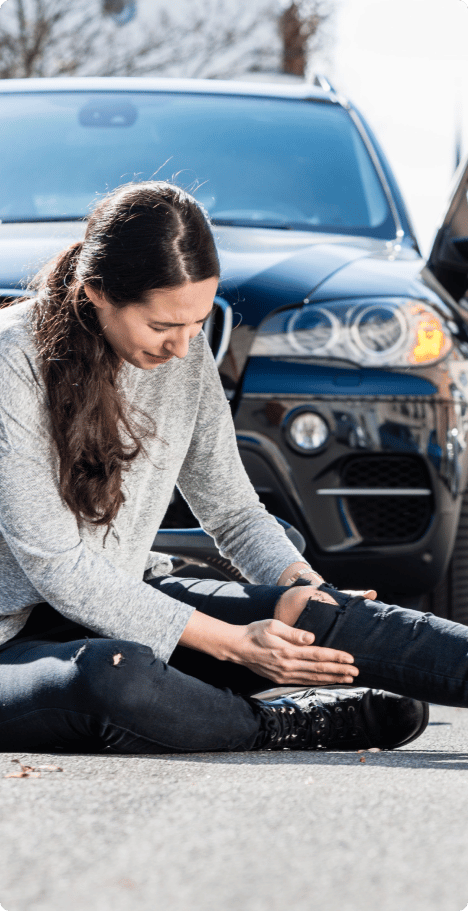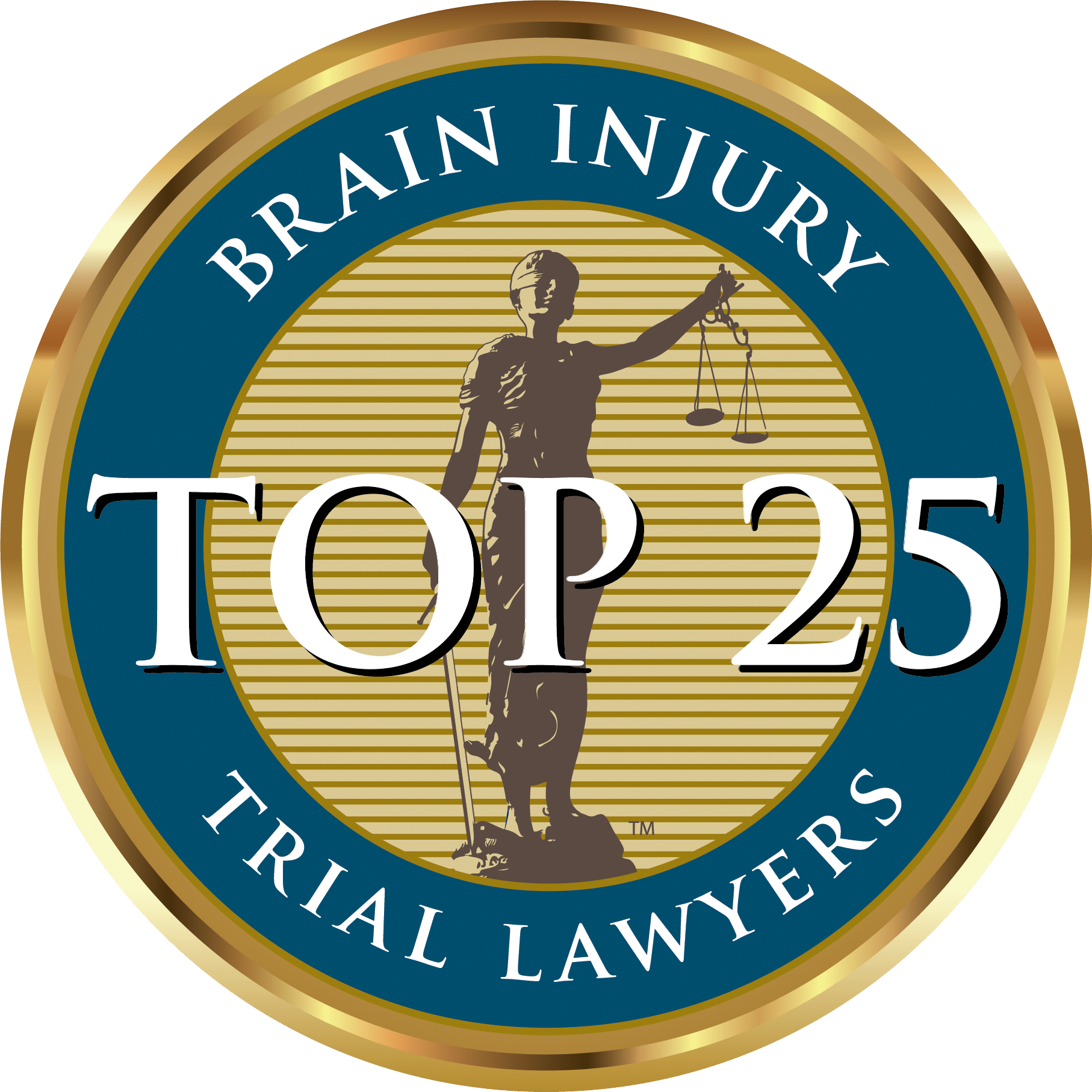Home > Recovering Physically and Mentally from a Car Accident
Recovering Physically and Mentally from a Car Accident
Car accidents can result in serious injuries. Car accident injuries can be physical, mental or a combination of the two. Sometimes, physical injuries can even result in psychological problems, such a brain injury resulting in depression or mood swings.
Common Physical Injuries from Vehicle Accidents
Physical injuries resulting from a car accident include neck and back injuries, broken bones, nerve damage and lacerations, among others. The injuries a car accident victim sustains depend on the type of collision, the speed and force of impact, and the type of vehicle.

Back injuries are one of the most common — and most debilitating — forms of injury that can occur in a car accident. A back injury can come with serious consequences for the injured person and can potentially lead to impaired mobility, paralysis, nerve damage and chronic pain.
Nearly any type of car accident can cause a back injury. These injuries happen when the back is suddenly jolted by the force of impact or sudden braking. A back injury can involve muscles, bones or nerves.
A spinal cord injury is a more serious form of back injury. Car accidents are the leading cause of spinal cord injuries. Nearly half of all spinal cord injuries reported each year happened in motor vehicle accidents.
Another of the most common back injuries sustained in a car accident is a herniated disc. A herniated disc occurs when the cushions, or discs, that separate the bones of the vertebrae are damaged or moved. This condition can lead to long-term chronic pain, numbness, tingling and weakness.
Whiplash is the common name for a neck injury that happens when the neck is suddenly thrown forward and then snapped back. Whiplash often occurs in rear-end collision car accidents.
Whiplash recovery varies by individual. Some people make a full recovery, while others may experience pain, reduced mobility, tingling, headaches and dizziness. Whiplash can also lead to problems with sleep, memory and concentration.
Brain injuries are one of the most serious results of a car accident. Traumatic brain injuries (TBIs) may be mild, moderate or severe. Any type of car accident can result in a blow to the head.
A concussion is an especially common form of brain injury. A concussion is classified as a mild TBI. Typical symptoms of a concussion include cognitive difficulties with memory, concentration and focus. A person with a concussion may appear confused or lightheaded.
According to Cleveland Clinic, moderate and severe traumatic brain injuries can occur when head trauma leads to severe brain swelling. These injuries can sometimes result in more significant cognitive impairments. Recovery may take longer, and a person’s health may never return to the state it was before the accident.
A person with a severe TBI may need support in learning to manage the symptoms. In the most severe cases, a victim of TBI may permanently remain in a coma.
Car accidents can also lead to lacerations, which are soft tissue injuries such as gashes and cuts. These injuries can be major or minor, and in some cases, they may require stitches or surgery. Depending on their depth and location, these injuries might lead to disfigurement or chronic pain.
Gashes and cuts in a car accident usually result from blunt trauma. Glass, metal and other materials exposed in the crash could lead to serious lacerations.
Knee injuries are another common car accident injury. Knee injuries usually occur when the knees are slammed into the dashboard. A knee injury can involve damage to ligaments, tendons, cartilage, muscle or bone.
Knee injuries can have a serious impact on mobility and may lead to reduced ability to bend the joint, weakness, instability, pain and swelling.
Broken bones, or bone fractures, are also common in a car crash. How a person experiences broken bones in a car accident depends on factors like the angle and force of impact. They’re also a common outcome when a person is thrown from the vehicle.
The long-term consequences of a broken bone vary by person. A person’s health and age can affect the healing process, and the type and location of the break are also factors in recovery time.
Nerve damage after a car accident is a common consequence of some of the injuries discussed above. Back injury and whiplash are two sources of serious nerve damage. However, nerves can also be damaged when lacerations or broken bones harm the surrounding areas.
Nerve damage can lead to a wide range of symptoms, including numbness, weakness, tingling or pain. It can also lead to problems with bodily functions such as urination, blood circulation and digestion.
Tips to Recover from Physical Car Accident Injuries
After a car accident injury, certain practices can aid in healing, regardless of the extent of the injury. Follow these tips to best support your recovery.
Consult a Doctor
Rest
Rest is essential for healing. Resting allows your body to conserve energy and focus on regeneration. It also puts less stress on physical injuries, which helps to prevent worsening the injury or creating complications.
Physical Therapy
Physical therapy is an important part of recovery for many car accident injuries. Find a physical therapist in your area who specializes in the type of injury you’ve sustained. Physical therapy comes with an array of healing benefits. It can help you avoid surgery and prescription drugs, relieve pain, restore mobility and prevent further injury.
Slowly Begin Exercising and Stretching
Stretching and light exercise are effective ways to help the body recover after a period of immobility. Stretching has many benefits to the healing process. Mayo Clinic experts promote stretching for increased joint mobility and blood flow and stronger muscles.
Talk to your doctor or physical therapist to make sure you’re stretching or exercising in a way that supports healing and doesn’t put too much stress on your body.
Working with a kinesiologist to facilitate return to exercise is vastly more effective and successful because as a kinesiologist, we can design programs tailored to a client’s current condition and goals. This ensures safe exercise practices and a speedy recovery.
Eat Healthy Foods and Drink Plenty of Fluids
A healthy diet is essential to healing from an injury. Foods rich in protein, vitamin C and calcium are particularly beneficial when your body needs to heal. Online resources like MyPlate.gov let you track your diet to ensure that you’re getting the nutrition your body needs to heal.
Staying hydrated is also important after a car accident injury. Dehydration may prevent the delivery of oxygen and nutrients to cells, taking a serious toll on the healing process.
Ice and Heat
Alternating the application of ice and heat can facilitate the healing process. Heat increases blood flow to the area of an injury, while cold reduces pain and inflammation.
Massage Therapy
Massage therapy can have a powerful impact on the healing process.
According to Harvard Health Publishing, massage can:
- Reduce pain
- Restore comfort
- Stop pain signals from being sent to the brain.
Massage therapy is beneficial for a variety of injuries, especially those that lead to headaches and pain in the back, neck and shoulders. It can also ease stress, anxiety, sleep problems and depression.
Alternative Medicine
Traditional medicine can go a long way toward healing after a car accident, but keep in mind that there are other options worth exploring if you find yourself struggling with symptoms after an injury.
Chiropractic care can significantly reduce pain and restore the health of the nervous system and spine. Chiropractic adjustments are particularly helpful after a car accident injury has caused whiplash, herniated disc or nerve compression in the spinal cord.
Chiropractic care can restore strength and mobility and reduce problems related to the nervous and musculoskeletal systems. In some cases, it can serve as an alternative to invasive procedures such as back surgery. It’s important to work with a licensed chiropractor to ensure that adjustments don’t cause further damage.
Acupuncture is another form of alternative medicine that might provide pain relief when traditional methods have failed. Acupuncture involves the placement of needles into specific areas. It can treat injuries to the back, neck, joints and bones.
If you opt for acupuncture treatment, make sure you’ve chosen a licensed practitioner who uses sterilized needles.
Psychological Effects of a Car Accident
While car accidents are known for causing life-altering physical injuries, they can also result in mental distress. The psychological effects of a car accident can manifest in two ways.
The first involves the mental and emotional impacts of the accident and how the victim copes with trauma afterward.
Alternatively, medical experts have noted, the injuries sustained in a car accident, such as brain or nerve damage, can result in “feelings of isolation, depression, anger, fear, sadness and shame.”
Mental health concerns can feel overwhelming, but emotional and psychological healing after a car accident is possible. Seeking resources and the aid of mental health professionals can significantly improve your mental well-being.

Psychological and Emotional Symptoms
Flashbacks
Flashbacks are intrusive memories of a traumatic event. Flashbacks often trigger fear or panic and may strike at any time without an apparent cause.
Fear of Driving
Fear of driving or riding in a car is common to car accident survivors. Fear of driving can have a significant impact on quality of life, making it difficult for an individual to travel to work or participate in family or social events.
Depression and Anxiety
These disorders often accompany post-traumatic stress disorder (PTSD). According to the nonprofit organization, BrainLine, they can also be attributed to traumatic brain injury. Depression and anxiety may also be a reaction to disfigurement, paralysis or reduced mobility caused by the injury.
Stress
Overwhelming stress is another common mental health consequence of a car accident injury. Stress that impacts quality of life can exist alone or with other mental health concerns. Financial implications of the accident, such as medical bills, can also play a role in stress.
Mood Swings
Mood swings are frequently related to physical injuries from car accidents. Victims of TBI and injuries to the nervous system are at particular risk of experiencing mood swings.
Tips to Recover Mentally from a Car Accident
Mental health recovery is deeply personal. No two individuals have the same healing journey. With that in mind, here are some general tips to support mental health as you begin preparing to drive again.
Talk About the Accident
Visit the Crash Site
Emotionally Prepare to Drive Again
Start with a Short Drive
Keep Slowly Progressing
Follow Medical Advice After a Brain Injury
When a traumatic brain injury is the cause of psychological distress, recovery outcomes can be difficult to predict. If you’ve sustained a brain injury, consult with your doctors and mental health specialists before getting behind the wheel of a car.
Older Drivers and Car Accident Injuries
The topic of older adult drivers and car accident injuries deserves to be addressed separately. As we get older, certain age-related physical changes occur, such as delayed response time, vision and hearing problems, and cognitive changes that affect thinking and memory.
The natural effects of aging give rise to the stereotype that older drivers may be less capable and, thus, more likely to experience a car accident injury. The data supports this theory, but for reasons you might not expect.
Older drivers are as competent as their younger counterparts at operating vehicles and avoiding accidents. What’s different for older drivers is physical hardiness.
Older drivers are far more likely to end up seriously injured in a car accident due to the physical frailty that accompanies aging. According to the data, that fragility begins having a serious impact on drivers over the age of 60 and steadily increases with each decade.
The CDC reported that In 2020 alone, nearly 200,000 older adult drivers were treated at emergency rooms for injuries related to car accidents. Completing a health assessment can protect the safety of an older driver.
Resources such as the CDC’s MyMobilityPlan and AAA’s Senior Driver Safety and Mobility Program can help older drivers and their loved ones plan for success.

Justice for Car Accident Injury Victims
There’s no doubt that a car accident can forever alter a person’s life. In addition to injuries, car accident victims may experience excessive medical expenses, chronic pain, the inability to work, the need for ongoing medical procedures or assistive care.
There are a great many ways in which a car accident injury can detract from a person’s quality of life and financial well-being. Knowing the importance of seeking medical attention after a car accident and working with an experienced attorney can make a significant difference in the outcome of any accident case.
If you or a loved one has been injured in a car accident, Cordisco & Saile, LLC may be able to help you recover compensation to offset your expenses. Contact us today to speak with our nationally recognized attorneys about pursuing compensation after a car accident injury.


